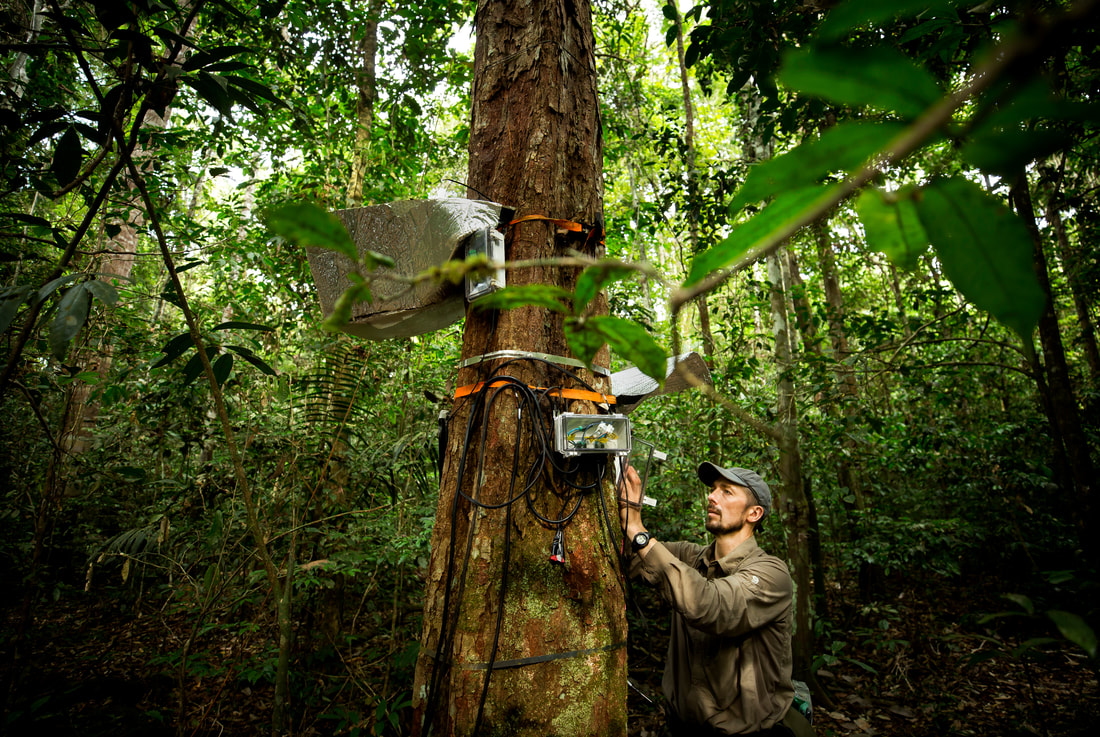Together with colleagues (S. Fatichi and E. Daly), we recently wrote a review article for Oxford Bibliographies detailing our vision of the discipline (Ecohydrology. Online reference resource, Oxford Bibliographies in Environmental Science. New York: Oxford University Press, 2019. doi: 10.1093/obo/9780199363445-0120). I will recite it here: ecohydrology is the science that studies how water in all its forms links living organisms and their abiotic environment to define their function, interactions, structure, and distribution. The key point, perhaps, is the multifaceted nature of ecohydrology that spreads its interests across various terrestrial ecosystems in which water plays the crucial linking role. My personal bias is the focus on vegetation water relations.
What are your undergraduate and graduate degrees in?
I received my undergraduate degree (a Diploma) in Hydrology at Moscow State University in Russia. I later moved to the U.S. and did both my M.S. and Ph.D. degrees in Hydrology at MIT working with Rafael Bras.
How did you arrive at working in/thinking about ecohydrology?
Educated as a physical hydrologist at my undergraduate institution, my graduate school period benefitted from the freedom of thought. I was fortunate to be working in the group that was frequented by a diverse cohort of scientists from around the world. There was a continuous flow of novel research insights - the ideas of ecohydrology were ‘brooding’. Personally, I was affected by the passionate seminars by Prof. I. Rodriguez-Iturbe and our subsequent group discussions of ecohydrology papers that started coming out in the early 2000s. The monograph on ecohydrology by Prof. P. Eagleson that exposed the elegant combination of physical and stochastic principles was yet another strong nudge.
What do you see as an important emerging area of ecohydrology?
Undoubtedly, the intersection of plant canopy, stem, and root ecophysiology and soil water hydraulics. As vegetation traits are gradually filtered in response to the transient climate, there is a need to better understand belowground controls of plant ecophysiological function. The coupling between root traits and soil hydraulic relations emerges as one critically less studied domain where colleagues and I are investing research efforts with unexpected discoveries.
Do you have a favorite ecohydrology paper? Describe/explain
Noy-Meir, I. 1973. Desert ecosystems: Environment and producers. Annual Review of Ecology and Systematics 4(1): 25–51. This review article on water-limited ecosystems was perhaps my first read that revealed the amazing plasticity of vegetation and its ability to thrive in environments of scare resource. Despite the qualitative nature of the narrative, this synthesis raised a lot of immediate questions that required a quantitative approach and some form of a model in which water was the crucial element. This created an obvious bridge between my past experiences of being a physical hydrologist and the new realm that no longer required to consider vegetation to be a ‘resistance function’.
What do you do for fun (apart from ecohydrology)?
I like to learn, invent, and fix things. My latest projects include a climbing cave for my kids in the house; a mega-swing on a 200-year old oak in the backyard. A tree-house that balances load on a maple tree and uses no nails on its stem or branches. A zip-line. My field experiences are always fun – through them, I learned arborist’s techniques to climb tall trees, how to sleep in a hammock, or choose a path in the jungle. I am looking forward to learn reindeer sledding next year!

 RSS Feed
RSS Feed